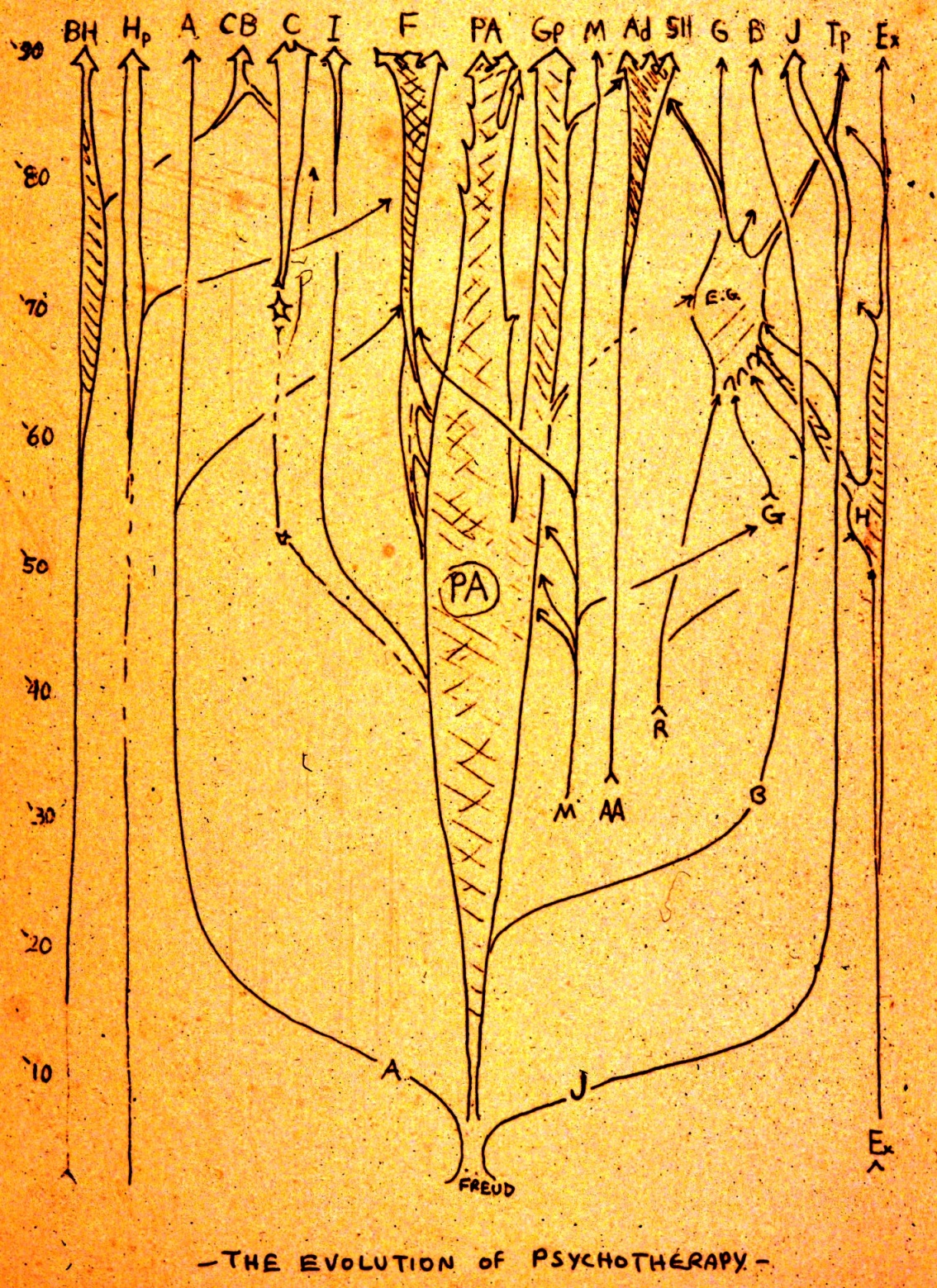Outline
Diagram on the History of Psychotherapy
Adam Blatner
(May, 2012). (This is a supplement to a webpage on Reflections on the History of Psychotherapy)
To begin with, here's a chart I made up in the 1990s....
|
Behavior
Therapy
Adlerian
Cognitive Ther
Family
Therapy
Group
Psychotherapy
Addictions
Gestalt
Jungian
Existential |
|
Hypnosis
Cognitive-Behavioral
Interpersaonal
Psychoanalysis
Moreno
Se;f
Help
Bioenergetic
Transpersoal |
 |
Some explanations:
Behavior Therapy
(The line at the far left on the chart above): The roots of behavior therapy go back to the early 1900s and experiments by Ivan Pavlov on "conditioning" dogs to salivate when they hear the bell that is associated with getting food. Exploring associative learning, stimulus and response, became an important element in academic psychology in the 1930s and some of its principles began to be used more widely in the 1960s. From there it has infiltrated other eclectic approaches.Psychology has advanced mightily in the last half century and continues to make headway, moving from the periphery, a sort of weird bunch of theories of folks who mess iwht your mind, toward the center---a way of being more conscious in the way we work and play and love together.
At first psychology in the 19th century was more technical, looking at basic phenomena such as perception and illusion. Then it moved towards conditioning of dogs and rats---the work of Ivan Pavlov. Then along came Freud and he approached the mind in terms of more basic operations of desire and self-deception. Now I disagree with about two-thirds of Freud, but this emphasis on looking at self-deception has been confirmed by hundreds of modern-day researchers who are in no way Freudian. Nor is this really all that psychological---those who practiced the art of persuasion back in ancient Greece learned as part of their life curriculum what was called "rhetoric." Today they call this advertising, political propaganda, publicity, spin-doctoring---but it all preys on the vulnerability of the mind to thinking along lines that are by no means rational, although they give that feeling of being rational. That needs to be said again: It's possible to get the feeling that a thought seems entirely plausible, true, right, and yet it's based on false assumptions. So what we said about philosophy last time is fueled by the trend to gather together what we've been learning in so many ways and generate a new way to be n the world---a mixture of courage, a degree of confidence, balanced by intellectual humility, a skill in evoking and using feedback----this is not yet common among leaders--- and other skills for self-management in a more complex world.
Psychology, then, like philosophy, involves skills that were not particularly needed back then but certainly are today.!
c.
e y.